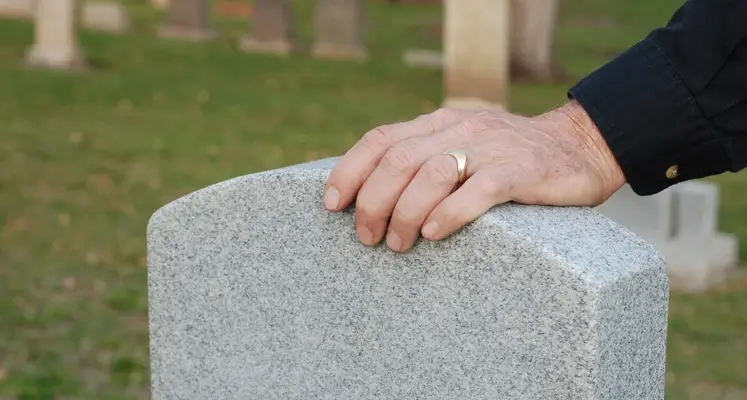Yes, certain surviving spouses can use VA loans to purchase or refinance a home under specific conditions.
The Department of Veterans Affairs requires that the spouse’s eligibility stem from a veteran’s service-related death or disability.
Surviving spouses who meet these criteria may benefit from zero-down payments, competitive interest rates, and potential funding fee waivers.
If you’ve lost a service member or veteran spouse, navigating the financial fallout can feel overwhelming. You may be wondering if you can use a VA loan to secure or refinance a home.
This article breaks down the essentials of how surviving spouses can indeed use a VA loan, offering you the resources and clarity needed to move forward confidently.
Understanding VA Loans
VA loans are government-backed mortgages offered through private lenders—such as banks or credit unions—that are guaranteed by the U.S. Department of Veterans Affairs.
Because of this government guarantee, lenders often provide more favorable terms, including lower interest rates and zero-down payment options.
The program was originally designed to help veterans, active-duty service members, and certain members of the National Guard and Reserves achieve the dream of homeownership.
In this Article
Key Benefits of VA Loans:
- No Down Payment: You can finance 100% of the home’s value, reducing the immediate cash burden.
- Competitive Interest Rates: Lower rates compared to many conventional loans.
- No Private Mortgage Insurance (PMI): This saves you a substantial amount over the life of the loan.
- Flexible Credit Requirements: VA loan guidelines are generally more forgiving than standard mortgages.
How VA Loans Differ from Conventional Mortgages:
| Aspect | VA Loans | Conventional Mortgages |
|---|---|---|
| Down Payment | Not required (0%) | Typically 3%–20% |
| Credit Score Requirements | Often more lenient (no official minimum) | Usually stricter requirements |
| Private Mortgage Insurance | Not required | Required if down payment < 20% |
| Funding Fee | Varies, but may be exempt for surviving spouses | Not applicable |
By understanding these basic components, you’re better positioned to see how VA loans can serve as a powerful tool for surviving spouses seeking a stable home.
Eligibility Criteria for Surviving Spouses
As a surviving spouse, you may qualify for a VA loan if your spouse passed away in the line of duty or from a service-related injury or disability.
You must also typically remain unmarried—or, in specific cases, have remarried after reaching the age of 57 and on or after December 16, 2003 (in alignment with VA guidelines).
- Service-Related Death: Your spouse’s death must be tied to active duty or a qualified service-related disability.
- Death from Non-Service-Related Cause (If Rated Totally Disabled): In certain situations, if the veteran was rated totally disabled and passed away, you might still be eligible for VA loan benefits.
- No Remarriage (with Exceptions): Generally, the surviving spouse must not have remarried, unless they meet certain age and timeline exceptions laid out by the VA.
- Certificate of Eligibility (COE): You’ll need to obtain a COE confirming your spouse’s service record and your qualifying status.
Understanding these specifics is crucial. If you’re unsure about your eligibility, you can start by contacting the VA directly or working with an experienced VA-approved lender who can guide you through the process.
Unique Benefits for Surviving Spouses
While VA loans offer attractive terms to veterans and active-duty service members, surviving spouses enjoy distinct advantages and occasionally additional state-level benefits.
- Zero Down Payment & Competitive RatesLike any VA loan beneficiary, you can often secure a mortgage with no down payment and lower interest rates than conventional loans. This significantly reduces up-front and long-term housing costs.
- Funding Fee ExemptionMost VA loans include a funding fee that helps sustain the program. However, surviving spouses eligible for Dependency and Indemnity Compensation (DIC) are typically exempt from this fee. This exemption alone can save thousands of dollars.
- Property Tax ExemptionsSome states offer partial or total property tax exemptions to surviving spouses of disabled veterans. Check with your state’s Department of Veterans Affairs or local assessor’s office to see if you qualify.
- Loan AssumptionIf you already own a home financed with a VA loan and meet certain criteria, you may be able to assume that existing loan under the same favorable terms.
By leveraging these advantages, you can potentially reduce your monthly mortgage obligations and preserve your financial well-being during a challenging time.
How to Apply for a VA Loan as a Surviving Spouse
Securing a VA loan as a surviving spouse follows a straightforward process. Here’s a step-by-step outline to guide you:
| Step | Action | Key Details |
|---|---|---|
| 1 | Gather Necessary Documents | Collect your marriage certificate, the veteran’s death certificate, and any related service records. |
| 2 | Obtain Your COE | Complete VA Form 26-1817 (Request for Determination of Loan Guaranty Eligibility). You may do this online. |
| 3 | Choose a VA-Approved Lender | Search for lenders with VA loan experience and positive reviews. |
| 4 | Get Preapproved | Submit your documents to the lender for financial review and credit check. |
| 5 | Find a Property | Work with a real estate agent familiar with VA loan requirements. |
| 6 | Make an Offer | Present your purchase offer to the seller. Ensure you include a VA financing contingency. |
| 7 | VA Appraisal | The lender requests a VA-certified appraisal to confirm property value. |
| 8 | Close the Loan | Sign final documents, settle fees, and receive your house keys. |
Required Documentation and Timeline
- Marriage Certificate & Death Certificate: These confirm your status as the spouse of a deceased veteran.
- VA Form 26-1817: A 26-1817 is submitted to verify your VA loan eligibility.
- Timeline: The entire approval process can take anywhere from 30 to 60 days, depending on your lender and the complexity of your application.
Common Pitfalls and How to Avoid Them
Misunderstanding Remarriage Rules
Pitfall: Some surviving spouses incorrectly assume they’re automatically disqualified if they remarry.
Solution: Check VA guidelines on remarriage exceptions. If you remarried after turning 57 on or after December 16, 2003, you might still be eligible.
Funding Fee Confusion
Pitfall: You may be charged a funding fee if the lender doesn’t realize your exempt status.
Solution: Ensure your lender receives documentation of your Dependency and Indemnity Compensation (DIC) eligibility to waive the fee.
Credit Score Oversight
Pitfall: Assuming VA guarantees mean no credit requirements.
Solution: The VA doesn’t enforce a strict minimum credit score, but lenders do. Aim for a score of 620 or higher to enhance loan approval odds.
Skipping Preapproval
Pitfall: House-hunting before getting preapproved can lead to wasted time.
Solution: Secure a preapproval so you know your budget and can act swiftly on desirable properties.
Overlooking Additional State Benefits
Pitfall: Missing out on potential property tax breaks or other perks.
Solution: Research your state’s specific veteran and surviving spouse benefits for further financial relief.
The Bottom Line
Losing a spouse who served in the military is a profound life event, and the financial aftermath can be complicated.
However, VA loan benefits extend to eligible surviving spouses, offering a viable pathway to homeownership or mortgage relief. By understanding the specific eligibility criteria, key benefits like funding fee exemptions, and the step-by-step application process, you can confidently pursue a VA loan that meets your housing needs.
Remember to take advantage of resources such as state-specific property tax exemptions, consult with experienced VA-approved lenders, and gather the necessary documentation before you begin. Armed with the right information, you can navigate this journey more smoothly and secure the financial stability you deserve.
Frequently Asked Questions
1. What if I’m a surviving spouse but my veteran partner passed away from non-service-related causes?
Surviving spouses whose spouses died from non-service-related conditions might qualify if the veteran was rated totally disabled for a certain period before death. The Department of Veterans Affairs determines eligibility on a case-by-case basis, so it’s best to apply for a Certificate of Eligibility (COE) or consult with a VA-approved lender to find out more.
2. Can a surviving spouse reuse a VA loan benefit?
Yes. If you sell the home and the existing VA loan is paid in full, you can often restore your VA entitlement for a future property. The key is to ensure there’s no outstanding balance tied to your VA home loan. Once restored, you can reuse your benefits just like any eligible veteran or spouse.
3. How long does it take to get a Certificate of Eligibility (COE)?
The timeline varies. Applying online through the VA’s eBenefits portal can sometimes provide a quicker turnaround—often within a few weeks. If you apply by mail using VA Form 26-1817, it might take longer. Working with a VA-approved lender can also help expedite the process, as they can file requests on your behalf.
4. Is the funding fee automatically waived for surviving spouses?
If you’re eligible for Dependency and Indemnity Compensation (DIC), you typically qualify for a funding fee waiver. Make sure your lender is aware of your DIC status. Provide the necessary documentation to prove your waiver eligibility, and confirm the waiver is applied to your loan estimate and closing disclosures.
5. Can I qualify for an Interest Rate Reduction Refinance Loan (IRRRL) as a surviving spouse?
Yes. If you currently have a VA loan in your name (following your spouse’s passing) and you live in the home as your primary residence, you may qualify for an IRRRL. This refinance option can lower your monthly payment or change your adjustable rate to a fixed rate, simplifying your long-term finances.
6. Do all lenders understand surviving spouse VA loan guidelines?
Not all lenders specialize in VA loans, much less the specific nuances for surviving spouses. Seek out a lender with significant experience in VA lending. Check reviews and ask questions upfront about how many surviving spouse VA loans they’ve handled. An informed lender streamlines the process, saving you time and potential frustration.
7. Can I use a VA loan to buy a second home or investment property as a surviving spouse?
VA loans are primarily for primary residences, not vacation or investment properties. Whether you’re a veteran or a surviving spouse, the property must generally be your primary residence. That said, some multi-unit properties (up to four units) may be eligible if you occupy one unit as your main home.
8. Does my state offer additional benefits beyond the VA loan?
Many states provide supplementary benefits, such as property tax exemptions, discounted home improvement grants, or special mortgage assistance programs. The rules vary widely by state, so contact your state’s Department of Veterans Affairs or local assessor’s office. Combining these with your VA loan benefits can significantly reduce your overall housing costs.























